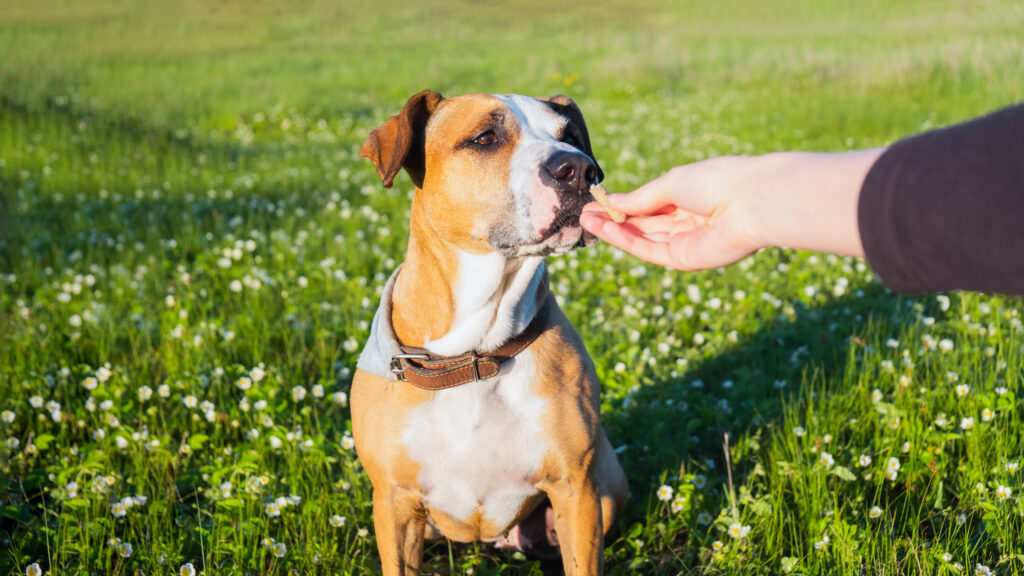
Understanding Dog Separation Anxiety and Vomiting: A Comprehensive Guide for Pet Owners
Share
For those who prioritize their pets' health, witnessing signs of distress in dogs can be quite distressing, particularly when these signs include anxiety and vomiting. This issue, unfortunately common among dog owners, often arises when dogs are left alone, leading to what experts call dog separation anxiety.
Dogs form deep bonds with their human companions, and when those companions are away, many dogs suffer considerable stress, which can exhibit itself in various ways, including physical symptoms like vomiting. Addressing these issues not only enhances your dog's well-being but also fortifies the bond between you.

Recognizing Signs and Symptoms of Dog Separation Anxiety
Typically, dog separation anxiety is marked by behaviors such as destructive chewing, incessant barking, and sometimes inappropriate elimination. Vomiting, however, is frequently overlooked as a symptom that may indicate more profound anxiety problems. Early recognition of these symptoms is vital, as sustained anxiety can lead to significant physical health problems. For further information on identifying dog anxiety, you may find this training article to be beneficial.
Why Do Some Dogs Vomit Due to Anxiety?
Vomiting related to anxiety typically results from the bodys stress response. When dogs feel anxious, their systems release stress-related hormones like cortisol, which can disrupt their digestive processes, leading to nausea and vomiting. Understanding these reactions enables pet owners to implement appropriate solutions.
Strategies for Managing and Mitigating Separation Anxiety
Effectively addressing this type of anxiety requires a blend of patience and consistency. Approaches might involve creating a safe environment for your dog in your absence, providing toys and treats to keep them engaged, or utilizing training methods to gradually ease them into being alone. For more suggestions on managing dog behavior, consider exploring this harness guide for useful tips.
The Importance of Diet and Exercise
Both nutrition and exercise significantly influence anxiety management in dogs. A healthy diet coupled with regular physical activity can contribute to an overall calmer demeanor, thus decreasing the chances of anxiety-induced vomiting. This holistic approach often complements behavioral strategies.
Seeking Help from Professionals
While numerous home remedies can yield positive results, sometimes it's necessary to consult a veterinarian or animal behaviorist, particularly if the vomiting persists. Professionals can provide customized advice and may even prescribe medications to alleviate severe anxiety symptoms. You can discover more expert insights in this dog training guide.
Navigating the Path Ahead for Pet Parents
Addressing dog separation anxiety and vomiting is a journey that demands understanding, empathy, and proactive measures. By staying informed and taking action, pet owners can help their dogs lead joyful, healthy lives free from the burdens of separation anxiety. For further education, consider checking additional resources on dog training and behavior.

Frequently Asked Questions
Can adjusting my dog's diet reduce anxiety?
Absolutely, a well-balanced diet plays a crucial role in managing anxiety levels and fostering a sense of calm, which may help mitigate physical symptoms like vomiting.
When should I seek professional assistance for my dog's anxiety?
If home-based interventions do not alleviate the symptoms, particularly if vomiting continues, its advisable to consult a veterinarian or behaviorist for professional support.
Are certain breeds more susceptible to separation anxiety?
While any dog can experience separation anxiety, some breeds, particularly those known for strong attachment tendencies, like Labrador Retrievers or German Shepherds, may be more prone to this problem.
For effective training techniques, consult this settle training guide.
Can using a harness help alleviate anxiety?
Using properly fitted harnesses, such as the harness vest can offer comfort to dogs, potentially easing their anxiety during walks and outings.
What role do toys play in managing separation anxiety?
Providing enriching toys can distract dogs during periods of separation, helping to keep them engaged and alleviate feelings of anxiety.
This article contains affiliate links. We may earn a commission at no extra cost to you.
